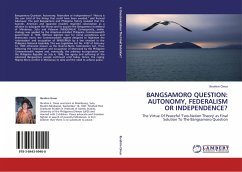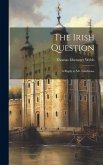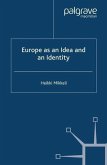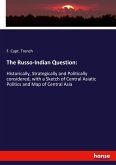Bangsamoro Question: Autonomy, Federalism orIndependence?"History is the sum total of the things that couldhave been avoided," said Konrad Adenauer.The past Bangsamoro and Philippine history revealedthat the Spanish, American and Japanese invadersregarded colonization as a solution to subjugate theMoros and to acquire the Bangsamoro homeland ofMindanao, Sulu and Palawan (MINSUPALA) Consequently,similar strategy was applied by theAmerican-installed Philippine Commonwealth governmentin 1935. Without slightest care for moral uprightnessand democratic norm, the Commonwealth regime designedto legitimize the 'colonization' and occupation ofMINSUPALA by a law enacted in the Philippine NationalAssembly. This was Legislative Act No. 4197 ofFebruary 12, 1935 otherwise known as theQuirino-Recto Colonization Act. Thus, following the'colonization' and occupation of Moroland by thePhilippine Commonwealth regime and, eventually, thearbitrary incorporation into the Philippine Republicon July 4, 1946, the agony and suffering of thecolonized Bangsamoro people continued until today.Hence, the raging Filipino-Moro conflict in Mindanaoto date and the need to achieve peace.
Bitte wählen Sie Ihr Anliegen aus.
Rechnungen
Retourenschein anfordern
Bestellstatus
Storno








